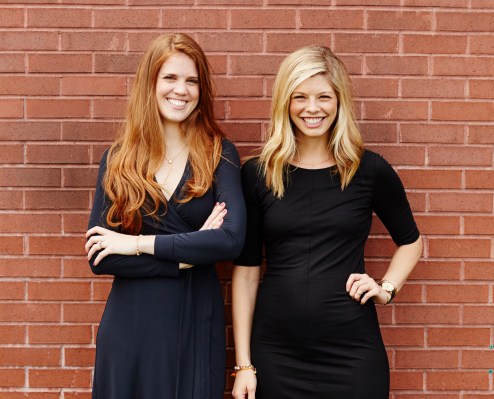A number of startup studios are in the midst of a years-long experiment, providing back-end assistance, office space and mentoring to talented, ambitious people in order to create a startup with them, often based around their expertise.
Betaworks was the first to try it, opening its doors in New York roughly nine years ago. Others, including Expa, a San Francisco-based firm with an office in New York; Science, based in L.A.; and Chicago-based Roniin are among many newer models, each with their own twist.
Human Ventures, which opened its doors in New York roughly a year ago, thinks it has struck on a model that can work, too.
The outfit was founded by entrepreneur Joe Marchese, who’d sold his adtech company to 21st Century Fox for $200 million in late 2014. But Marchese is just the largest among a group of mostly New York-based angel investors who are investors in Human Ventures. Indeed, the now six-person firm, which has raised an undisclosed amount of money, is largely run by CEO Heather Hartnett and Megan O’Connor, who joined the firm last May as its chief growth officer.
They aren’t longtime startup veterans. Hartnett ran business development at the venture firm City Light Capital and, before that, worked in philanthropy, including at the David Lynch Foundation. O’Connor also worked previously in nonprofits, including as a development director at both Pencils of Promise and Goods for Good.
That they’re comparative outsiders is kind of the point of Human Ventures, though, which is looking to seize on people’s skills in a way that puts them on an entirely new, and hopefully more fruitful, career path.
Harnett and O’Connor are expert at fundraising and networking, for example, which a recent dinner in San Francisco helped to underscore. Held at one of the city’s smallest (and therefore, hippest) restaurants, two popular VCs rubbed elbows — literally — with four product leads from top Internet companies, along with several rising-star founders, an angel investor, a reporter, and O’Connor, who helped organize the evening.
The events are a regular occurrence, suggests O’Connor, who says Human Ventures often organizes intimate gatherings, including on behalf of its investors.
Such relationships will be central to Human Ventures’s success.
As Harnett sees it, New York is a very different ecosystem than San Francisco, where far fewer people imagine themselves as entrepreneurs, even in a day and age when founders are so widely celebrated.
“People who’ve worked in large companies and who want to work in really early-stage companies need help in bridging the gap,” Hartnett says. “They might not feel comfortable making that leap on their own despite their industry expertise or being really great at product.”
Meanwhile, she says, Human Ventures promises them access to its “human network, which we’ve been developing for a long time.” It enables them to “help entrepreneurs get started really fast, as well as provide them with strategic relationships to help them fill in the gaps.”
Human Ventures is clearly still evolving. Thought it’s involved with six startups, it has launched just three at its Union Square offices and alas, they’re all in stealth mode. (One, an app to help freelancers get paid, sounds particularly interesting.)
The others include Reserve, a digital concierge service that Marchese had invested in previously. (Part of his stake was transferred to Human Ventures when he founded it.) Human Ventures also holds a stake in Picture Motion, a marketing and advocacy firm for issue-driven films that predates Human Ventures but with which it’s working to develop digital products. Human Ventures also helped put together the founding team of Current.com, a new payments platform, with fellow startup studio Expa. (Current is currently located at Expa’s offices.)
All of its startups democratize access to premium experiences in some way, shape or form, says O’Connor, adding that half were started by first-time entrepreneurs.
As for what Human Ventures asks in return from those companies it helps build from the ground up, O’Connor says its ownership stake can range from 10 percent to just under 50 percent, depending on its level of involvement. “We don’t want a conveyor belt formula,” she says. “We do want founders coming in who will own the majority of their business.”
If Human Ventures can get a bigger bite later on, that’d be okay, too.
Sounding very much like the company builder and investor she has become, Hartnett tells us: “Right now, we’re investing off our balance sheet to fund our companies, but the near-term goal is to raise a fund and keep [our pro rata] stake in them as they grow. The platform was created to help companies, but [our] value later [will be] financial.”
Photo courtesy of Human Ventures. Left to right, Hartnett and O’Connor
